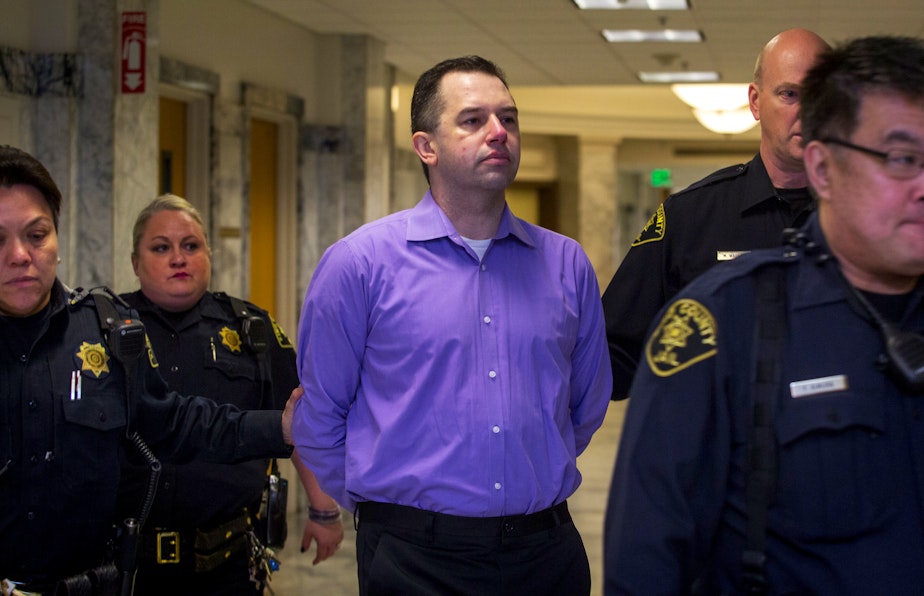Death Penalty Withdrawn For Woman In Carnation Murders

A woman charged in the murder of her family in Carnation, Washington, will not face the death penalty, the King County prosecutor said Wednesday.
The state’s case against Michele Anderson hooks into debate about capital punishment. A jury has already found Michele Anderson’s former boyfriend, Joseph McEnroe, guilty of the murders. Anderson now is expected to face trial this fall as an accomplice.
During a news conference, King County Prosecutor Dan Satterberg painted McEnroe as a monster.
"And the evidence in that case revealed that McEnroe fired the shot in five of the six murders," Satterberg said. "And it was McEnroe who made the decision to kill the children. Olivia Anderson, age 5. And Nathan Anderson, age 3."
Satterberg alleges McEnroe and Anderson worked together and she’s equally responsible.
Sponsored
So, he says, Anderson’s maximum penalty should be equal to what a jury gave McEnroe last month. That jury declined the death penalty, opting instead for life in prison without possibility of parole.
The murders occurred on Christmas Eve 2007. And questions around the death penalty have caused delays.
Satterberg says the victims’ families are exhausted and support his decision.
"They’ve been through an emotional marathon in this case," he said. "They want to get their life back.”
Across the country, death sentences and executions have sharply declined since the 1990s, according to the Death Penalty Information Center, a nonprofit in Washington, D.C.
Sponsored
Washington Gov. Jay Inslee has put a moratorium on executions here, and state lawmakers continue to push proposals to eliminate the death penalty.
This month in another high-profile case, Christopher Monfort was given life in prison in the ambush murder of a Seattle police officer.
Seattle attorney Tim Ford specializes in defending death row inmates. He sees a key reason for growing opposition to capital punishment: When innocent people are discovered on death row, it strikes a nerve.
“The exonerations through DNA primarily are the biggest driver of public opinion nationally, and I think here as well,” he said.

